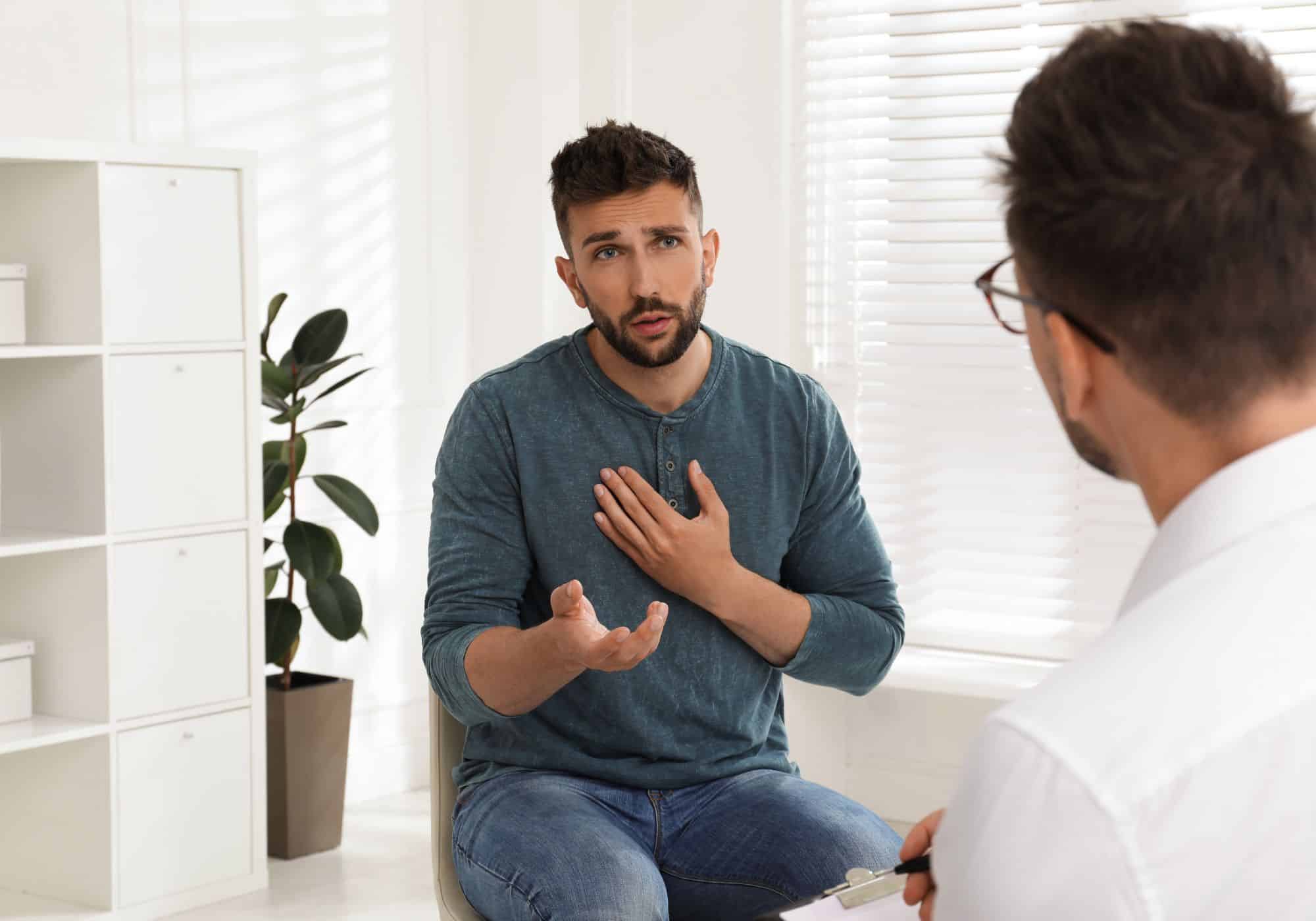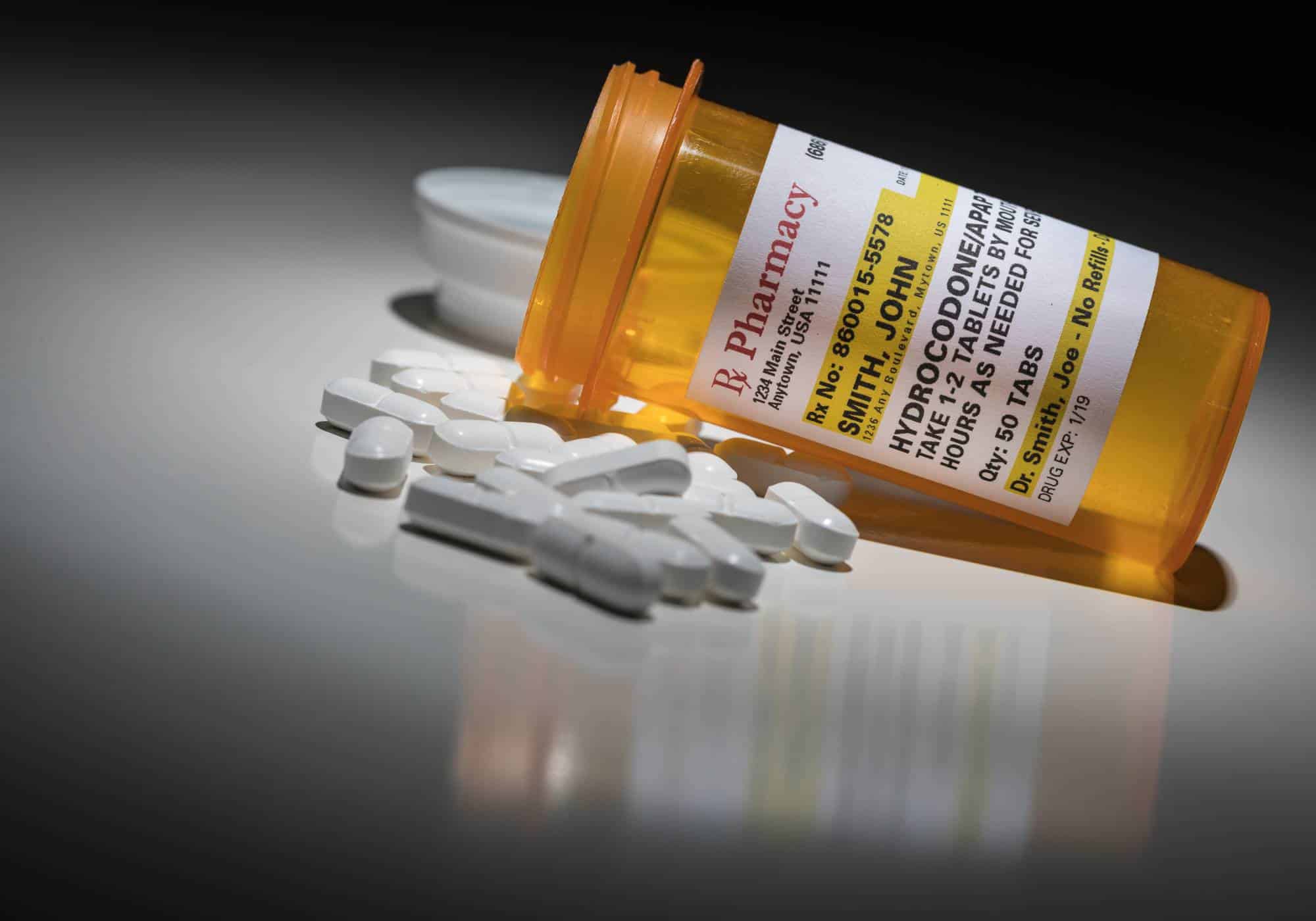Drug and Alcohol Addiction Treatment in Georgia
Acknowledging a struggle with substance use is often the first step towards recovery. Once recognized, the journey towards healing involves choosing the right treatment program tailored to an individual’s unique needs to regain health, happiness, and well-being.
Various treatment pathways range from inpatient residential care to outpatient programs. It’s crucial to gauge the required level of care initially. Some might need acute detox services provided within inpatient programs, especially if cessation leads to withdrawal symptoms. Conversely, others may find starting with outpatient care as beneficial as inpatient programs, provided there aren’t withdrawal risks. Post-treatment, several avenues further aid in sustaining recovery.
It’s vital to understand that addiction recovery isn’t a “one-size-fits-all” solution. Ensure the chosen treatment aligns with your specific requirements for a successful recovery journey.
The journey to recovery from substance use is challenging. Commitment, determination, and consistent support are pivotal for achieving and maintaining sobriety. Remember, this journey is communal. Fostering robust connections with fellow recoverees is invaluable during treatment, as is the unwavering support from loved ones.
Recovery is reciprocal: the effort you invest is the healing you reap. Let’s delve into the critical components of treatment to illuminate the road ahead.
Addiction Treatment Statistics:
Based on the National Survey on Drug Use and Health (NSDUH), in 2017:
- Nearly 19.7 million U.S. adults (those 12 years and older) grappled with a substance use issue.
- Roughly 20.7 million individuals aged 12 and up required treatment for substance use issues. However, merely 4 million, which is approximately 19% of that number, sought treatment.
- Out of the 18 million who didn’t seek treatment for substance use, only a fraction, about 1 million or 5.7%, believed they needed it.
- Alcohol use disorders affected roughly 74% of these adults.
- Illicit drug use disorders were a challenge for about 38% of these individuals.
- Concurrent alcohol and drug use disorders were faced by 1 in 8 adults.
- 8.5 million U.S. adults dealt with both mental health and substance use disorders, known as co-occurring disorders.

Defining Drug Addiction — What Is Drug Abuse?
Drug addiction is a complex condition that affects both the brain and behavior. It often starts as a voluntary act of taking drugs but can evolve into a compulsive need that’s hard to control. Over time, prolonged drug use can lead to an inability to stop using, despite a desire to do so.
The journey into drug abuse can vary. For some, it begins with casual or experimental use in social settings or alone. The pleasurable sensations experienced during these early stages can prompt repeated use, increasing the frequency and potentially leading to addiction.
Alternatively, addiction can stem from the medical use of prescription drugs. For instance, painkillers prescribed for post-injury relief might inadvertently become a dependency, with the medication’s addictive properties leading to a reliance far beyond its intended medical use. In such cases, the drug becomes a necessity for daily functioning, marking the transition from use to addiction.
What Is a Drug Overdose?
A drug overdose is a serious and often life-threatening situation that occurs when a person’s body is overwhelmed by excessive amounts of a drug. This can happen when the body is unable to process or eliminate the drug effectively, leading to critical health risks such as impaired breathing, loss of consciousness, and even sudden death.
Overdoses can occur under various circumstances, including accidental overconsumption, especially with prescription medications. When the body reaches its limit and can no longer cope with the drug levels, vital organs may start to malfunction.
Key indicators of a drug overdose include severe chest pain, extreme paranoia, disorientation, confusion, aggressive or violent behavior, difficulty in breathing, and experiencing seizures. If any of these signs are observed, it’s crucial to seek immediate medical attention, as a drug overdose can be fatal without prompt and appropriate care.
Signs of Drug Addiction
Identifying drug addiction is the first step towards seeking help and making positive changes. Often, individuals struggling with addiction or their loved ones may notice certain signs that indicate a growing problem. These signs include:
- Persistent and overpowering drug cravings that overshadow other thoughts.
- A compulsive need to use the drug regularly, often to the point of dependency.
- Continued drug use despite experiencing harmful consequences.
- Neglecting responsibilities at work or school due to drug use.
- Repeated unsuccessful attempts to quit or reduce drug use.
- An increasing tolerance to the drug, leading to the consumption of larger doses to achieve the same effect.
- Allocating funds for drugs, even at the expense of essential responsibilities and needs.
- Noticeable physical changes such as fluctuating energy levels, significant changes in weight, or redness in the eyes.
Recognizing these signs is crucial for understanding the need for intervention and support in addressing drug addiction.

Types of Drug Addiction Treatment
Every individual’s journey to recovery is unique, necessitating tailored treatment programs that cater to their specific needs. The most impactful treatments are those that engage individuals actively throughout their recovery journey.
Residential Treatment (Inpatient Rehab)
Residential or inpatient rehab offers an immersive treatment environment. Here, individuals stay in a controlled, substance-free setting, receiving continuous medical attention and therapeutic aid. This approach is particularly beneficial for those battling persistent substance use or concurrent mental or behavioral challenges.
Intensive Outpatient Program (IOP)
IOP drug addiction treatment programs strike a balance between rigorous treatment and daily life flexibility. While not as immersive as inpatient programs, they offer concentrated treatments that allow patients to return home after sessions. This approach is apt for those who have completed inpatient treatment or require a structured program without full-time commitment.
Partial Hospitalization Program (PHP)
PHP drug addiction treatments are a step between inpatient and outpatient care, suitable for those who need intensive treatment but not 24/7 supervision. Patients attend day-long treatments several times a week while returning home or to a sober living facility in the evening.
Outpatient Rehab
Outpatient drug addiction treatment programs offer extensive care akin to inpatient settings but with the flexibility of staying at home. Patients can often juggle work or family responsibilities while attending regular treatment sessions. Since these programs don’t isolate individuals from daily life, there’s a heightened risk of encountering temptations or triggers, especially during early recovery. Outpatient settings are ideal for those with milder substance use issues and a strong commitment to recovery. They also serve as a transitional phase post-inpatient rehab, often paired with sober living arrangements.
Medical Detox
Overseen medical detox ensures individuals safely navigate the withdrawal phase, purging substances from their system. It’s typically the initial step for those with moderate to severe addiction levels. Depending on the substance, medication-assisted therapy (MAT) might be employed to alleviate withdrawal symptoms and avert potential medical complications. The medications administered are often gradually reduced until the individual is free from dependency.
Sober Living Residences
Acting as a transitional space between intensive treatment and normal life, sober living homes provide a structured environment for individuals to fortify the lessons from their treatment. It’s a nurturing space allowing residents to practice their newfound habits among peers on similar recovery paths.
Medications in Addiction Treatment
During detox and subsequent treatment phases, medications might be prescribed to support recovery, whether it’s to manage withdrawal, curb cravings, or address co-existing conditions like anxiety or depression. For optimal results, these medications should be integrated within a broader treatment strategy.
Types of Treatment for Addiction Treatment
Treatment for substance use disorders often incorporates diverse therapeutic methods tailored to an individual’s emotional and physical wellbeing. Various evidence-supported methods cater to substance use issues and co-existing conditions, typically administered by certified behavioral health experts or addiction therapists.
Biofeedback
Biofeedback educates individuals about their body’s subconscious functions. During sessions, electronic sensors attached to the patient provide insights into vitals such as heart rate and breathing patterns. Analyzing this data, therapists suggest psychological techniques to enhance coping mechanisms for the body’s automatic reactions.
Cognitive Behavioral Therapy (CBT)
CBT addresses maladaptive thoughts and emotions that may threaten sobriety or trigger relapses. Beyond addiction, it’s also valuable for coexisting issues like depression or bipolar disorder.
Dialectical Behavior Therapy (DBT)
An offshoot of CBT, DBT targets extreme emotions, providing strategies for safe management. It emphasizes enhancing self-worth, offering stress-relief techniques, modifying detrimental behaviors, and developing skills to eliminate triggers.
Experiential Therapy
This method employs unconventional techniques to help individuals navigate and express distressing emotions or memories. Activities might include adventurous pursuits like rock climbing or animal-assisted modalities like equine therapy, enabling individuals to reinterpret or confront certain experiences.
Holistic Approach
Focusing on comprehensive well-being—encompassing the physical, emotional, and spiritual dimensions—holistic therapy integrates diverse activities. Examples range from yoga and acupuncture to art-centered therapy and guided relaxation exercises.
Motivational Enhancement Therapy
By dissecting the motivations underpinning their actions, this approach equips individuals to embrace change progressively. Especially pertinent for substance use disorders, sustaining motivation is a nuanced endeavor necessitating constant reinforcement.
Psychodynamic Therapy
Diving deep into an individual’s emotions and experiences, this method seeks connections between subconscious influences and overt behaviors. Recognizing these intricate relationships, patients can better understand their substance use triggers and devise ways to fulfill their genuine needs. Engaging in this journey often empowers individuals to sidestep pitfalls during their recovery journey.

How to Find the Best Drug Rehabs in Atlanta
When you’re looking for a Atlanta rehab clinic, the best place to start is by asking friends and family for recommendations. With millions of Americans suffering from issues with drink and drug addiction, there’s a strong chance someone in your social network will have experience of recovery.
The next step is to perform a simple Google search. Look for “Atlanta rehab” and try searching for “Atlanta drug rehab” or “Atlanta alcohol rehab” if you want a more specialized treatment center.
Assemble a shortlist and then contact the centers on your list to get more information about costs, length of treatment, and whether or not insurance is accepted.
To shortcut the process, consider Hope Harbor Wellness, a suburb of Atlanta rehab with a proven track record of success.
What to Expect from a Atlanta Drug Rehab Clinic
Rehab centers in Atlanta share the common advantage of being situated in serene and calming environments, which can greatly aid the recovery process. However, when selecting the most suitable treatment center in Atlanta for your specific needs, it’s important to focus on certain critical factors.
Here’s a helpful guide to assist you in evaluating the options for the best drug and alcohol rehab in Atlanta:
Prioritize Evidence-Based Treatment Programs
Not all addiction treatment methodologies are backed by scientific research. Ensure that the Atlanta rehab center you choose utilizes evidence-based approaches, including FDA-approved medications and established psychotherapies like CBT (Cognitive Behavioral Therapy) and DBT (Dialectical Behavioral Therapy).
Examine Success Rates and Client Testimonials
Inquire about the success rates of potential treatment centers, understanding how they define “success.” Are they referring to program completion rates or long-term sobriety? Compare facilities on a similar basis, considering the specific disorders they treat.
Verify Staff Credentials and Specializations
The effectiveness of your rehab experience is largely influenced by the staff’s qualifications and expertise. Ensure that the team is not only supportive but also professionally accredited, with specialists in addiction and mental health care.
Ensure Availability of Individual Therapy
While group therapy offers valuable peer support, individual therapy is crucial for addressing personal addiction challenges. Verify that the Atlanta rehab provides ample opportunities for one-to-one therapy, including a variety of therapeutic approaches.
Assess Specialization for Your Specific Addiction
Different drug and alcohol rehabs in Atlanta may specialize in treating certain addictions. It’s essential to choose a center with experience and a strong track record in treating your specific type of addiction.
Look for Comprehensive Dual Diagnosis Programs
If you have co-occurring mental health issues alongside addiction (known as dual diagnosis), it’s vital to choose a rehab that offers integrated treatment for both conditions.
Explore Aftercare Options
Recovery is an ongoing journey. The best rehab centers in Atlanta should offer extensive aftercare support, including continuous counseling, therapy options, and assistance with vocational and employment challenges.
By focusing on these key aspects, you can make an informed decision about the right Atlanta rehab center that aligns with your recovery goals and provides the necessary support for a successful journey to sobriety.
How to Seek Drug Addiction Treatment
Seeking drug addiction treatment is a critical move towards safeguarding the well-being of an individual grappling with substance abuse. The journey typically begins with a detoxification phase, conducted in a medically supervised environment to ensure safety and comfort. Following detox, both inpatient and outpatient treatment options are available, tailored to meet the unique needs of each individual.
A personalized treatment plan is pivotal in helping individuals understand their addiction. This plan includes developing effective coping strategies, enhancing life skills, and gaining insights into the reasons behind substance abuse. Drug addiction treatment offers a supportive and secure space for individuals to confront the dangers of continued drug use and to embark on the path to restoring their health and mending relationships.
Drug Addiction Recovery
Drug Addiction Recovering is a multifaceted process that necessitates initial and sustained support. It is imperative for individuals to engage closely with a treatment team, benefiting from personalized support alongside group therapy sessions. Recovery often involves significant lifestyle adjustments but embarking on this journey can lead to a longer, healthier life, restored relationships, and the fulfillment of personal ambitions.
Discover the various drug addiction treatments available at Hope Harbor Wellness Health, each designed to support you on your path to recovery.

Is Drug & Alcohol Addiction Treatment in Atlanta Covered by Health Insurance?
Absolutely. Owing to federal regulations, the majority of insurance providers are mandated to offer coverage for mental health services and substance abuse treatments. The parity laws dictate that the extent of this coverage must be on par with medical and surgical benefits provided within the same insurance plan.
Choosing a treatment facility within your insurance’s care network is vital. Centers in-network have agreements with insurance companies, ensuring you pay less from your pocket.
At Hope Harbor Wellness, we proudly partner with leading insurance providers such as Cigna, Aetna, and others. Determine your insurance’s coverage for treatments at Hope Harbor Wellness by filling out our secure online form.
How to Find the Drug Addiction Treatment in Atlanta
Embarking on the search for a drug treatment center in Atlanta can seem daunting, but a good starting point is reaching out to your personal network. Given the widespread impact of addiction across the U.S., it’s likely that friends or family members have either experienced or are familiar with recovery journeys and can offer valuable recommendations.
The next step involves harnessing the power of the internet. A quick Google search using terms like “drug addiction treatment in Atlanta,” “Atlanta drug rehab,” or “Atlanta alcohol rehab” will provide a range of options, particularly if you’re seeking specialized care.
Once you’ve gathered a list of potential centers, take the time to contact them. Inquire about crucial details such as treatment costs, program duration, and insurance compatibility.
If you’re looking for a more straightforward route, consider Hope Harbor Wellness. Located conveniently in a suburb of Atlanta, this rehab center is renowned for its effective drug addiction treatment programs and commendable success rates.
Addiction Treatment at Hope Harbor Wellness in Atlanta, GA
At Hope Harbor Wellness, our expertise lies in addressing a diverse range of addictions. We provide comprehensive care for dependencies on:
- Adderall Addiction Treatment
- Ambien Addiction Treatment
- Alcohol Addiction Treatment
- Benzo Addiction Treatment
- Cocaine Addiction Treatment
- Fentanyl Addiction Treatment
- Heroin Addiction Treatment
- Ketamine Addiction Treatment
- Kratom Addiction Treatment
- Marijuana Addiction Treatment
- MDMA Addiction Treatment
- Meth Addiction Treatment
- Opioid Addiction Treatment
- PCP Addiction Treatment
- Percocet Addiction Treatment
- Xanax Addiction Treatment
Choosing to overcome addiction is a testament to your strength and resolve. Reach out to us today and let’s embark on a transformative journey towards a healthier, addiction-free future. Your brighter tomorrow starts with a single step today.









